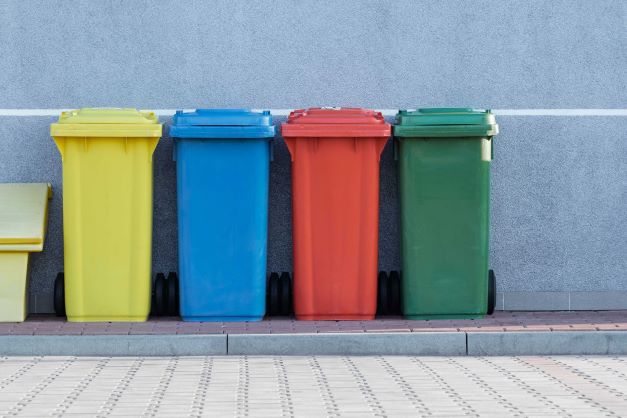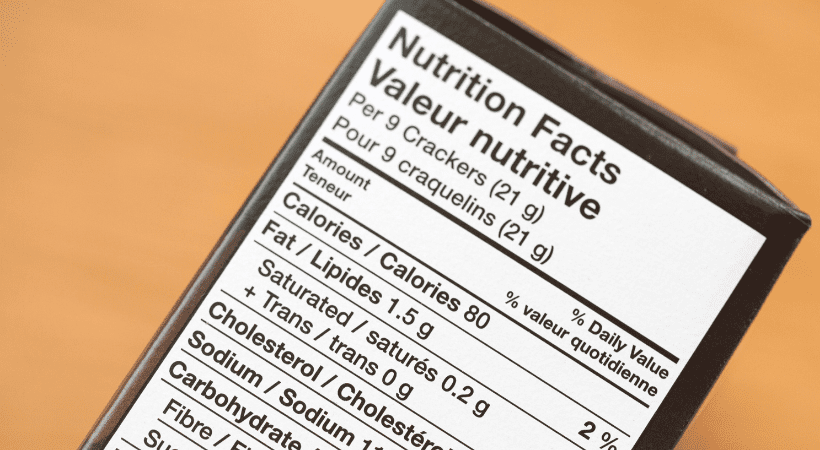Deposit Return Schemes (DRS) for food packaging in the UK and EU
Deposit Return Schemes (DRS) for food packaging in the UK and EU
With many different regulations on recycling and waste reduction out there, it can be confusing – and let’s face it, hard work – to make sure each product is compliant with the rules of the country it’s to be sold and marketed. Janet Dalzell, senior regulatory advisor at Ashbury, shares insights into deposit return schemes across the UK and EU, giving you a taste for the evolving legislation:
“The legislation around packaging information and recycling on labels is continuing to change because of ongoing efforts across the globe to reduce packaging and waste – requiring brands and food manufacturers to quickly adapt to ensure compliance.

What is a Deposit Return Scheme (DRS)?
Deposit Return Schemes (DRS) charge consumers a small amount, when they buy a product in a metal, can or PET plastic bottle, with the money paid back to the consumer when they return the container to the original or any other participating outlet for recycling. In some regions, such as Scotland and Wales, incoming schemes also look set to accept glass.
This scheme has been shown to work in many countries, but they’re not harmonised – which could lead to costly and complicated requirements for businesses selling in different regions. Norway and Germany, where DRS has been in place for some time, are leading the way with recycling rates and Belgium has a kerbside collection initiative in place for plastic, and bottle banks situated across the country for glass. The German legislation, known as Einwegpfand, has been in place since 2002 and the recycling rate of plastic is more than 97%, where consumers get 22p back when returning their containers to the place of purchase. In Norway, rates of 98% have been achieved for PET plastic bottles. Both schemes use barcodes as the main food labelling requirements, in Germany there is a universal symbol for single-use bottles but not for re-use bottles. In Norway, bottles, where a deposit is made, do bear a mark to indicate this.
DRS in Scotland, England, Wales and Northern Ireland
To address the low rates of recycling in the UK, currently, at just 59% in 2020 (just half of the 14 billion plastic bottles, 9 billion cans, and 5 billion glass bottles sold annually being recycled), new DRS schemes are in the works with each developing its own approach. Scotland has led the way and has postponed the launch of its scheme until 16 August 2023, instead launching a pilot scheme in Orkney in November 2022. The pilot scheme is likely a result of concerns from the industry about the effectiveness of the scheme and is tasked with maximising recycling rates. England, Wales and Northern Ireland are expected to launch a scheme in 2024, with details yet to come.
Will DRS impact food labelling compliance?
At this stage, Scotland has said that food labelling regulations will not require changes to labels (such as a logo) to be compliant. However, to prevent fraud, it looks likely that bottles in these schemes will have information included in the barcode to ensure the bottles sold in Scotland can only be returned in Scotland.
In the UK, online supermarket Ocado is trialling a digital scheme which uses a QR code on the pack to enable consumers to ‘deposit’ their return via their smartphone into their mobile wallet, with packaging disposed of in existing recycling bins. This has the potential to reduce the infrastructure costs for such a scheme but would need to function alongside a physical DRS to enable equal access to all consumers.
What manufacturers can expect is additional expectations from retailers, who will want to know more about packaging specifications as they navigate evolving regulations.
Want to know more? Check out our guide ‘Sustainable Food Systems: Recycling and Packaging Legislation in Key Global Markets’ for a taste of what regulations matter to your products in the UK, EU, GCC, USA and Australia. Access the guide here.
Links of interest:
Judicial review launched to challenge Scotland’s DRS rollout | News | The Grocer
Scotland’s ambitious DRS stirs industry fears of costly disparate UK systems (packaginginsights.com)
Ocado launches world first digital DRS tech trial | The Grocer
Next reads
The Peanut Diaries: School and Social Occasions
The Peanut Diaries: Navigating Social Events and Celebrations with Food Allergies
The Peanut Diaries: A Parent’s Journey to Uncovering their Child’s Allergy
Redefining Healthy: What the FDA’s New Rules Mean for Food Labels and Nutrition Claims
Keep up to date with our latest insights
Subscribe to our mailing list to stay in touch with the latest news, insights and updates from Ashbury





